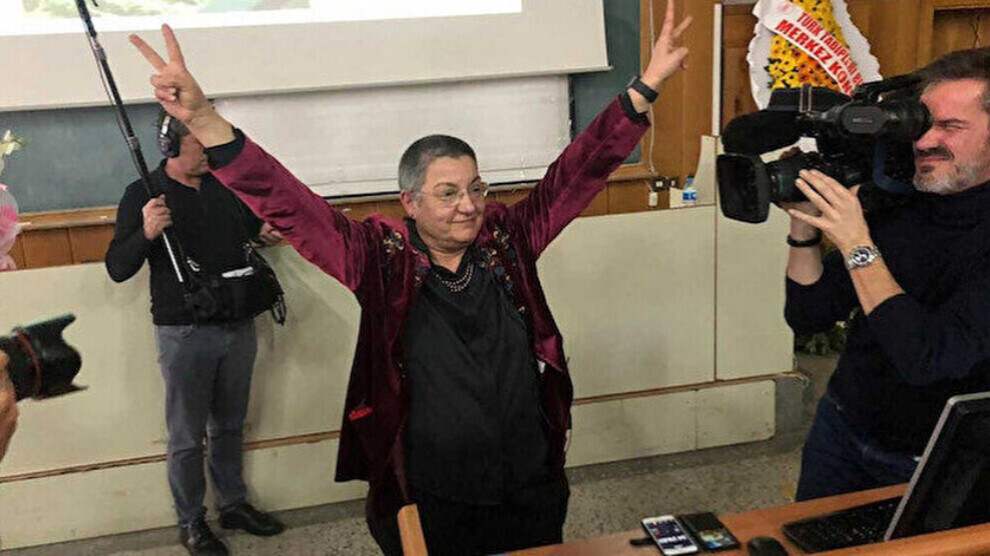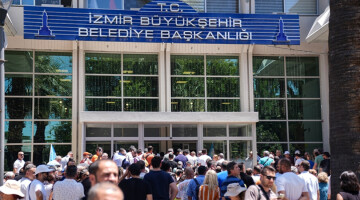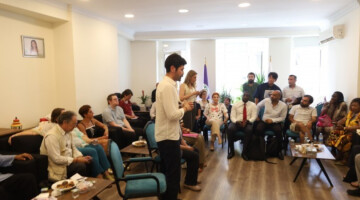The 2nd Criminal Chamber of the Istanbul Regional Court of Appeal completed the appellate review of the sentence of 2 years 8 months and 15 days of imprisonment given to Turkish Medical Association (TTB) President Şebnem Korur Fincancı by the Istanbul 24th Heavy Penal Court for "making propaganda for an illegal organisation".
Deciding that there was no procedural and substantive illegality in the judgement of the local court and that there was no deficiency in the evidence and procedures, the chamber pointed out that the evaluation in terms of proof was appropriate. Arguing that the action was correctly characterised and the imprisonment sentence of 2 years, 8 months and 15 days was handed out within the legal context, the chamber rejected the appeal on the merits by rejecting the reasons put forward by the defendant's lawyers and the public prosecutor.
Background
The Ankara Chief Public Prosecutor's Office on October 20 opened an investigation against Fincancı because of her comments on a video published by ANF on October 18, showing two PKK (Kurdistan Workers' Party) members suffering from a chemical attack in Iraq's Kurdistan Region.
The substance of the investigation, accusing Fincancı of "propagandizing for a terrorist organization" and "publicly degrading the Turkish Nation, the state of the Republic of Turkey and its institutions", is constituted by Fincancı’s comments to Medya Haber. The head of TTB stated that the involuntary movements of the people seen in the video could occur with the effect of a chemical getting hold of the nervous system and that an effective investigation should be carried out in relation to this if there are allegations that a chemical was used.
Regarding the investigation, Korur Fincancı told Bianet, "If there are such allegations, they should have allowed an effective investigation into the incident. Opening an investigation against the one who is saying 'an investigation should be made' gives the impression of concealing a crime. We also know why such an investigation was opened. They want no doctor to talk about these issues again. This investigation is an attempt towards intimidating and silencing people.”
"However, I proved many times that I will not keep silent, therefore I do not think that this investigation is targeting me. This investigation is meant to be an intimidation for the whole society. Great misfortune for Turkey,” Fincancı noted.
The head of the Turkish Medical Association added, "In any case, what needs to be done in this kind of a situation is to request an effective investigation. They should have started an effective investigation and proven that they have not used any chemicals instead of opening an investigation against me.”
The trial provoked international protest. Five UN Special Rapporteurs called on Turkey in early November to release the arrested President of the Medical Association immediately and not to use anti-terror laws as a means of intimidation. Similar statements were made by IPPNW, the World Medical Association and numerous other organisations. The German Medical Association also called for Fincanci's release. Its president, Klaus Reinhardt, called for the case to be dropped and said that doctors should intervene if there is a suspicion of human rights violations.
Şebnem Korur Fincancı was born in Istanbul in 1959. She is a renowned forensic scientist and chairperson of the Turkish Medical Association (TTB) and a board member of the Human Rights Foundation in Turkey (TIHV). In 2018, she was awarded the Hessian Peace Prize. Before her arrest, she spoke about the human rights situation in Turkey at the Concerned Persons Conference in Cologne. Despite a lynching campaign instigated against her because of her demand for an independent investigation into chemical weapons attacks by the Turkish army, she subsequently returned to Istanbul and was arrested. She had previously informed the Ankara Chief Public Prosecutor's Office through her legal counsel that she was willing to testify in the criminal proceedings against her. It is largely thanks to her courage that the Turkish war crimes in Kurdistan have become an international issue.











